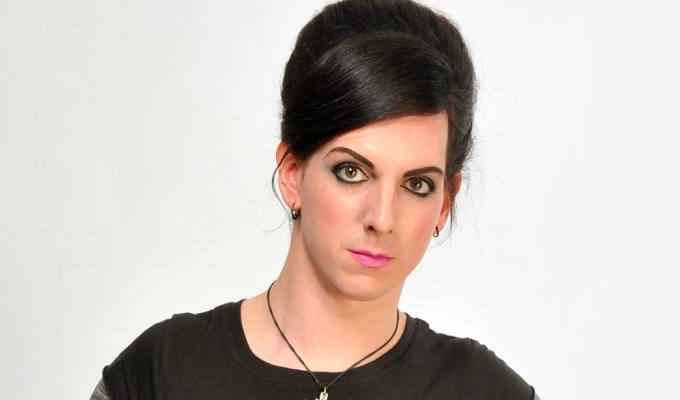Reviewers reviewed
Tony Wilkes looks at Chortle's Fringe coverage
Chortle Reviewers
August 6-30
1pm (free non-ticketed)
Chortle’s reviewers have been covering the Scottish capital’s three weeks of cultural veneer for the best part of a decade now, and as with any festival institution there is a danger of formulaic complacency. However, it seems that within the traditional framework there is enough variation to keep the customer satisfied.
This being the Fringe, there’s no way to see every review, so we’ll only visit the five- and one-star reviews here, these being always entertaining in and of themselves. So spare a thought for critics such as Jay Richardson and Julian Hall, who just miss out on a mention by having a Chortle Fringe experience that appeared so middle-of-the-road they were in danger of getting hit by the Princes Street tram. Let’s hope they are well-comforted by their regular and lucrative commissions for the national media. Yep, even critics sell out.
Opening the bill is the first of Chortle’s Angels, and Julia Chamberlain certainly seems to have inherited the majesty of her elder brother, Neville. Putting aside her withering zero-star dismissal of Dark Side Of The Poon, her reviews are a joy, a delightful balance of artistic assessment and personal empathy – her admission that Nina Conti had won her over ‘completely’ painted such a perfect likeness of a schoolgirl crush that even the iciest of punters couldn’t fail to have been touched. Similar betrothals of admiration for Des Bishop and Richard Herring demonstrate that, while the criticisms must be apposite, it takes a candid humanity to warm a readership’s heart with mere opinion, and at the end of the day isn’t that what reviewing is all about?
Marissa Burgess has unmistakeably inherited the mystery of her elder brother, Anthony. Indeed, her first pair of five-star reviews seem disappointingly disassociated from reality. The Boy With Tape On His Face, in particular, bordered on cold reportage – no mention of her smiling or laughing or any kind of personal reaction at all, Burgess’s only experiences during the hour seemingly the bringing to mind of ‘a nice image’ and having witnessed ‘an impressive moment’, the equivalent of receiving critical endorsement from a mist. Indeed, in these two reviews she never once used the words ‘I’, ‘me’ or ‘my’; if it weren’t for her intimate swan-song on Tommy Tiernan, I would have begun to question whether she exists at all…
Corry Shaw has obviously inherited the same exacting principles as her elder brother, Suzanne. Describing Matthew Crosby as ‘all business’, Pappy’s is obviously the acceptable standard of things, as are Adam Hills’ ‘community and shared goals’, and this is just the way things are supposed to be. But such high expectations will invariably be disappointed, and occasionally catastrophically so. Necessarily paraphrasing, two shows are comprehensively drubbed as ‘an excruciatingly inept attempt at tortuously spouting a vapid pile of nonsense’, and ‘a bad, awful, clichéd, lazy, one-dimensional, predictable, uninspiring hour of painfully dull laughable pain’. However, one can dismiss any of her implied claims of authority by examining her take on Struts And Frets – in one sentence the leading man ‘proves that he can actually act’, while in the very next he ‘proves that he genuinely cannot act’, leading me to conclude that Ms Shaw is deeply, deeply confused. [To be fair, the first comment was about intent, the second execution – Ed]
As is traditional, after the interval comes the open spot. Cara Sandys shows flashes of brilliance by identifying dissonance in a comedy performance, along with numerous multiple negatives such as ‘can’t fail to not’; however, many sentences read as a simple re-telling of biographical facts, which would not be a criticism in itself had not we read those facts so many times before. Six paragraphs will never a critic make, and while I’m sure the phrase ‘didn’t she do well’ will echo around her close friends and family, but there is more work to be done to raise her reviews above the level of ‘On my holidays I saw a man’.
Storming in for a once-in-a-brunchtime cameo, Bruce Dessau was shipped over from the Guardian to cover Daniel Kitson’s latest heave, presumably because everyone else was too hungover to reach the Traverse by 10am. As a review it is textbook, talking of themes and riffs and jabby-fingers, and how incidents can also be pregnant (with meaning) and not just ladies (with babies). Dessau’s sophisticated ear is obviously attuned to the subtleties of language, noting the bons mots ‘ponderous perusals’ and ‘verbal vetoes’, which in the Guardian is called alliteration. Most impressive was that Dessau knew that the show was a storytelling show, and not a stand-up show, even though Kitson was actually standing up for a lot of the time. Flawless.
The man who everyone came to read, Steve Bennett, may just be the Hannibal Lecter of criticism: a wise, gentle exterior, but given sufficient motivation and the modus of plain speaking he can literally review an act to death. And yet each summer an August of comedians hang on his every word like dank panties on a washing line. Saving the cream of the crop for himself (Kevin Eldon, anyone?) there are myriad examples of experienced insight, such as how Greg Davies’ show, despite contrary protestations, did actually have an underlying message; Bennett was even wise enough to hold off using the word ‘disingenuous’ as he knew the majority of readers would think he was calling Davies ‘not a genius’ – a grace that Sarah Millican was unfortunately not saved mere weeks later.
Bennett sagely boils down his whole sordid business as providing ‘adjectives for that next Edinburgh poster’ – this does him a disservice, as it his deftness with adverbs on which the connoisseur dotes – laying down ‘cripplingly’ and ‘flippantly’ and ‘devilishly’ as if they were a pull-back and reveal. It is a cliché to say that Bennett is a reviewers’ reviewer, but with such strong material it proves that a cliché becomes a cliché because it is true. Which is in itself a cliché.
I do, however take issue with his treatment of recent protégé Jason Stone. A member of the 2009 Edinburgh Comedy Awards panel, he has been wilfully misthrust into dingy basements to endure the worst the Fringe has to offer – seven (count them) one-star reviews. The poor bastard.
Showing his initial naivety by feeling the need to appear funnier than the acts – in a précis of Death By Gameshow, contestants are, predictably, ‘gamely executed’ – he then began to rationalise the tough-love treatment he was receiving from Chortle and to embrace the abuse in the way a chained gimp might, his recent treatment of Rogues Handbook effusive in its childlike glee.
He was apparently thrown a freakin’ bone by being sent to the five-star The Roaring Boys Will Set You Free, but with a title like that who could have expected it wouldn’t be a clunker? Whether this was an intended treat or Stone just fluked it on the rebound is moot, but I for one do not wish to witness a critic of mere months’ experience being paraded on the international journalistic stage like so many aborted puppydogs.
Shameful.
Distasteful.
Five stars.
Published: 1 Sep 2010






